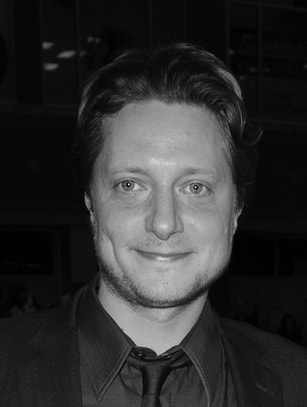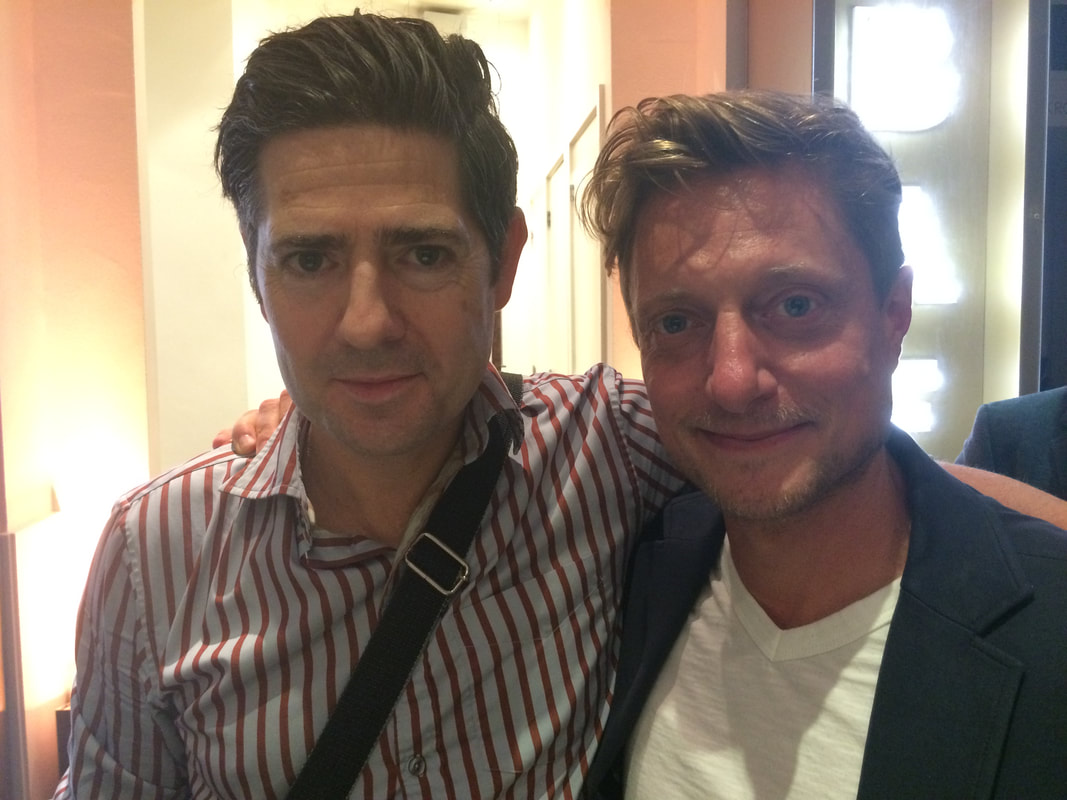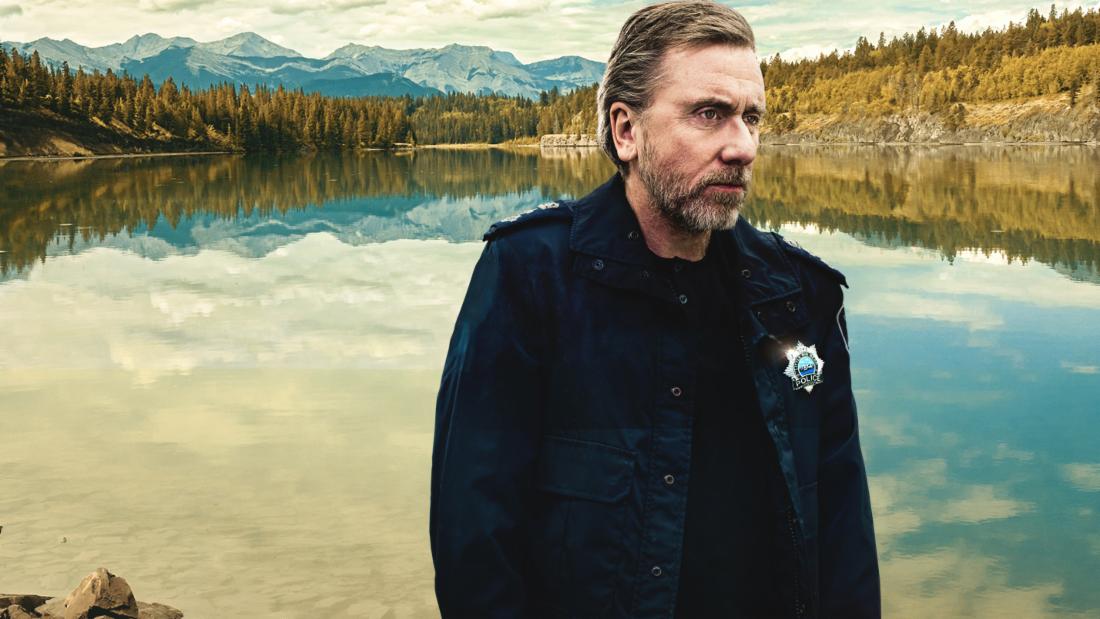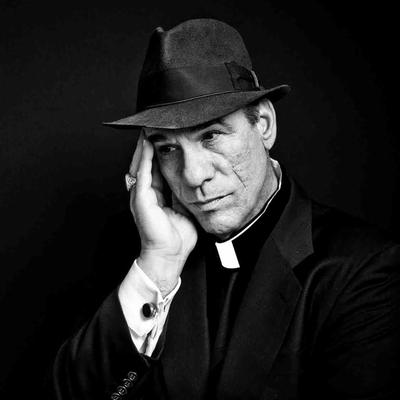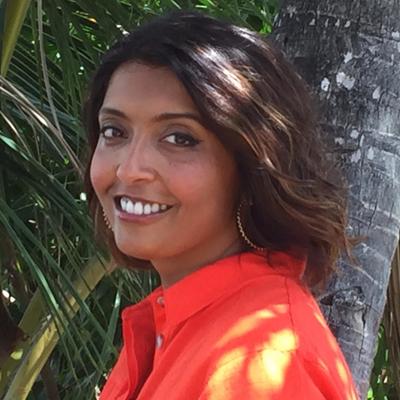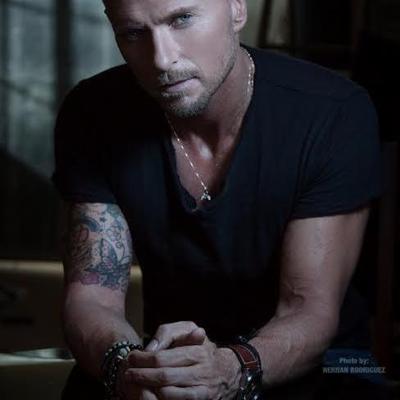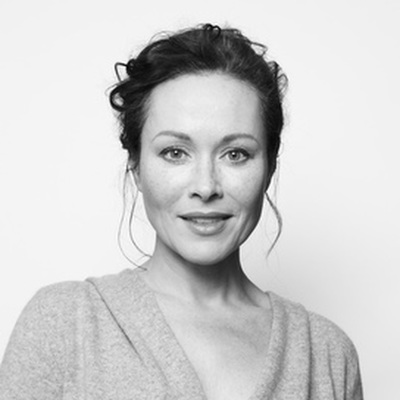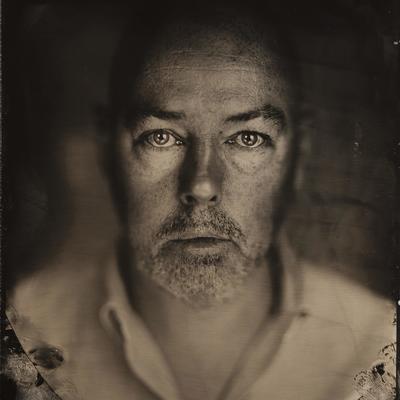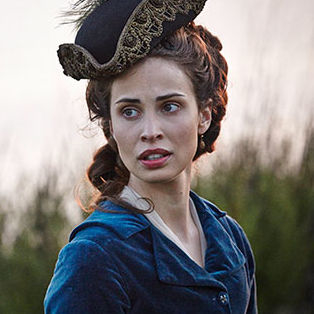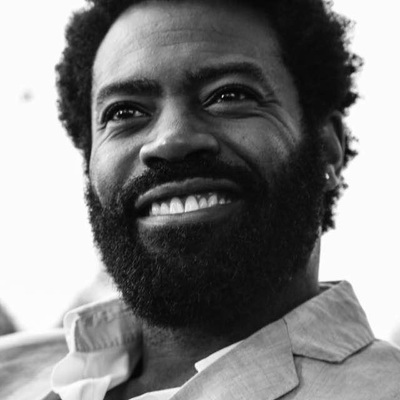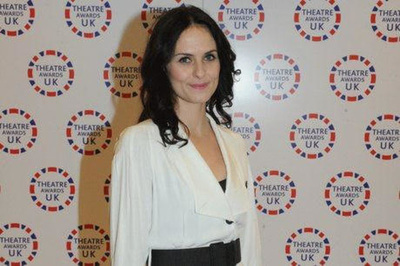Rowan Joffé
|
October 2017 | by Carl Marsh
|
|
|
Carl: If I could start by asking you about Tin Star. The role played by Tim Roth seems to have been written with him in mind and nobody else but what would you have done if he could not have played the part, who else was lined up, if anyone?
Rowan: Interesting. I had the same thing happen with Tim Roth that happened to me on Before I Go To Sleep with Colin Firth. In both cases, they were the first actors that came to mind when I was writing the role and for various technical reasons, they weren't necessarily the first actors that we discussed approaching but fortunately, both of them did turn out to be available, and liked the script. In the case of Tim and Tin Star, I honestly don't know what I would have done if we hadn't got Tim but I was able to modify the dialogue and the tone of the character much more intensively, once I knew we had him on board and indeed once the collaborative creative process was underway and I met him, and then talked through the first full script with him. Carl: Did you adapt it then once you knew for definite that Tim was on board? Rowan: Yes, although I didn't go out and write the entire season specifically for Tim's manner and then send it out to him and hope we got him. It was a slightly more organic process. Carl: Okay. I've seen the show and I loved it. I saw it a couple of weeks ago. It blew me away. I was really happy with the end product. Rowan: That's great, Carl. Did you see the whole thing? Carl: Yes, I saw the whole thing. Sky sent it to me a couple of weeks ago. I'm glad that the second series has been commissioned before it even aired. I'm just want to know where you're going to go with series 2, where Jim's character goes and I just can't wait until we find out what happens. No doubt you've got a lot going on in your head [laughs] but yes, I just can't wait. Rowan: I'm really pleased you watched the whole thing Carl because I've been interviewed by journalists who haven't. They've only watched the first two episodes and I've said to them, "It's a bit like watching the first 10 minutes of a 90 minute movie." It's not quite the same obviously because a movie isn't broken into episodes in the way that this is, but it's certainly similar to say reading the first few chapters of a novel and then interviewing the writer. I really appreciate you watching all of it. Carl: I just think, like you say, there's no point interviewing somebody without seeing a film, or reading a book in it’s entirety as it very may well go in a different direction a few scenes or chapters into it, as the show did with all the twists and turns! I'm just glad that Sky sent me the whole show before I could speak with you. With the character of Jim and Jack Devlin, was it your intention to prove that we can all have an alter ego when we're drunk or happen to take drugs, if anyone takes drugs, albeit not to the extremes that Jim or Jack goes to? Rowan: Yes. I was interested in the Jekyll and Hyde aspect of human nature. The idea that we have higher being that have reason, and love, and conscience for example, and then we seem to have a lower, more animalistic being that you might call the instincts that are there to ensure our survival. And often the two conflict with one another. In other words, I might get a better result from a colleague at work if I approach them from a place of love, my higher being. But because I'm frightened of not getting the result I want, my fear, which is an instinct, makes me come at them from my lower nature and perhaps bully them or intimidate them or threaten them. I believe that that dichotomy happens to every single human being, many hundreds of times each day. Every time we face a challenge and what interested me about alcoholism was that I could find a way of heightening that duality. And the whiskey would stand in for the magic potion in Jekyll and Hyde. Carl: With the show that you created and by writing it the script, you then only directed the first episode but with the other episodes, they were directed by quite a few other directors, did you give them free reign, and what was the reasoning in having on-board so many different directors? Rowan: Well, I didn't give them free reign, no. The reason why I directed the first episode was I wanted to precisely set the aesthetics of the show. I was trying to achieve a contemporary western in look. The reason I was trying achieve a contemporary western in look was because many of the themes of the story were western like. The idea of a family uprooting itself from the old country that were trying to forge a bright new future on a frontier. Therefore the look of the piece and the scenes of the story are inexplicably interlinked. I would no more give free reign to someone on one level than I would on the other because they are the same thing. The show looks the way it does because it's trying to tell the story that it's trying to tell. I did ask all the directors to make their acts look like mine. What was brilliant was that the really good directors, for example, Alice Troughton. They were able to not just honour the aesthetics of the show but honour it with relish and resourcefulness and inventiveness and stay true to it but also make their acts even better than mine. Then, there were other directors who, to be honest, were a bit disappointing, that perhaps lacked flair. Then there were, in truth, some directors who didn't stick to the script in the cutting room. My scripts are written in a way that the story doesn't work if you change the order of scenes around, so I had to recut some of it myself. But to answer the last of your question, why were there many directors? That's purely practical. What we did was we wanted to shoot each episode individually. And that was to protect the story and to protect the performances. Because a lot of shows are shot in blocks where you would shoot two, three or four episodes in one go and that means that the actors aren't filming the scenes in story order anymore. They're all over the place. And I think that affects performance. So for the integrity of the story, we shot one episode at a time and that meant that if a director was, say, directing episode two, we would have another director prepping three at the same time. And when the director who prepped three was shooting three, the one who'd finish shooting two, would start shooting four. In other words, they were leapfrogging. We could only ever have a director to do two episodes at a time because of other practical considerations but to be honest, I just didn't bother concerning myself with because I was too busy writing the show. It worked out okay in the end. Carl: What do you want people to take from the series, what message do you want to get across to those watching it? Rowan: Well, I don't really send a specific message because I think that really good drama is a bit like a fairy tale or a dream. I think that sort of lowbrow, quite poor dramas give you a precise message. The point about dramas and fairy tales and dreams is that they wrestle with problems to which there's no rational solution. At the heart of Tin Star is a sort of irresolvable dilemma because Jim needs to become Jack in order to have the ferocity to meet a hostile enemy and protect his family but that same ferocity will destroy everything he cares about. That's the sort of irresolvable aspect of human nature. Just look at the world. It's so wracked with hostility and fear and an obsessive quest by all the first world countries to increase their security. I'm not a political pundit or political scientist. I don't have anything sensible to say in that field. I'm a writer. I just want to embody some of these irresolvable ideas at the level of something that feels like a dream or a fairy tale. Tin Star is not a dream, and it's not a fairy tale. It's not Twin Peaks. It's not Fargo. It's not anything. It's grounded in reality and we always try to make the story as truthful and honest as possible. What I mean by dreamlike or fairytale-like is that I think it deals with big archetypal, universal, timeless and irresolvable themes like vengeance. I suppose the conflict in Tin Star is between vengeance and love. I hope that comes across a bit. Carl: Yes. It does, that message does comes across. Would I be right in saying that you have always known what you wanted to say with your screenwriting and films? Rowan: Oh, no. That's the point. I really, genuinely don't set out to say anything. You know Robert Louis Stevenson; and I'm not comparing myself to him at all, he came up with Jekyll and Hyde after having had a dream and really that's much more the kind of a writer that I am. I become obsessed with a certain character or obsessed with a place and the kind of stories that might unfold there or I become obsessed with an idea but it's not coherent. I don't set out to say anything specifically. Everything grows organically and unconsciously and intuitively. It all coalesces in this slightly, hopefully unpredictable and visceral way, and I never quite know where I'm going or what I'm going to get. For me that is what makes it exciting to write and makes it exciting to watch because some of the positive feedback I'm getting about season one is that it keeps twisting and turning and changing. That's because it's alive in a way. I just think once the beast is alive, I just try and feed it. I don't try and bully it into doing exactly what I think it ought to. Does that make sense? Carl: Sure, it's like you didn't want to create anything which is linear. You want to take people on a journey but not give them too many spoilers. Not to spoil the story. When I was watching the show, you just didn't know what to expect from the next episode whereas when you watch some other shows, you seem to know where it's going to go. How it ended though - and I'm not going to give any spoilers in case no one's seen the show or got to the end yet - was it always your plan to end it the way it did? Rowan: Yes, that's a good question. Actually, weirdly enough, yes, I had that ending in mind from fairly early on. I can't tell you why, it just popped into my head the idea that the daughter would turn on her father and conceivably kill him. One of the things I like about that is that if you go back and read the Greeks, the ones who started all this drama business, they're all about families turning on one another. Obviously, that's a very, very heightened version of a normal family. If I look at my own family life, it's full of tensions and conflicts. None of them are at that scale, obviously, but that there's something both really dramatic and heightened and archetypal about one family member reeking vengeance on another. At the same time, there's something really relatable and ordinary and everyday about it. Carl: You've worked with Colin Firth on Before I Go To Sleep and obviously, with Tim Roth on Tin Star. They play very different parts but do they have any similarities when you directed them? Rowan: One similarity is neither of them watch themselves. When you make the movie or the show, they don't watch it. I really respect that. I can't bear the sound of my own voice if I hear it on a recording. I can relate to an actor hating the sight of themselves on the screen although I don't know that that's their motive. I wouldn't want to speak for them. They were both similar in the sense that they're both extremely talented and very dedicated, hard-working actors who only do things that they believe in and who want the very best from themselves and from everyone working around them. Both of them force you as a writer and a director to be the best you can. Its a slightly anodyne answer but otherwise, they're very similar and very dissimilar. They're dissimilar backgrounds, dissimilar classes, quite dissimilar careers. Both, I think, movie stars. Both quite iconic, for me, anyway, in terms of cinema. I know Tim has done television before but there was probably some wariness on his part about doing television because he's still very much-- Movies are in his DNA. I'm just thrilled that this has worked out. I know he's thrilled with the show, as well. Obviously, that's a huge relief. Carl: Have you now found your niche in film and your writing, or do you want to delve into all sort of genres? Rowan: To be absolutely honest, all I want to do is to be able to tell the stories I want to tell in the way I want to tell them with a significant enough size of audience. watching them to feel like I'm alive as a writer. Whether that's in film or television doesn't matter to me. I'm fascinated by the idea of writing stage play. I'm intrigued by the idea of writing a novel, although I suspect I’m talentless when it comes to prose. But no, I just feel really, really privileged. When of the most exciting things about the show is writing a script that you know is going to be on screen in a few months time, and words spoken by actors who generally excite. Carl: With what you write, once it gets to film or TV, it has an unparalleled power to influence culture. Do you see it as a responsibility there as a screen writer or as a director? Rowan: No I don't. It's not that I don't think I have a responsibility, it's just that I generally don't think about that. All I tend to think about is how can I make what I'm writing simply surprising, but completely true? That's all I ever really think about. Carl: How much prep do you put into each and every project? Do you just go in with both feet, or do you just test the water? Rowan: Well to be honest, I focused everything on Tin Star because I decided that if I was going to write the best part of 10 episodes for television that it would take everything I had and more. I decided to dedicate everything to it and I've even been living in the place that it is set so that I can soak up every detail of what this part of the world is like, and what the people who live here are like. That's been part of the prep too, it is to just give as much love and attention to something as you can, and you get a better result. Carl: So you get a proper appreciation of the area and the people, and their way of life there. Yes, it sounds like you're dedicated, you're really dedicated, and you want to make the best of this. To go from that, I think you have made one of the best TV shows I've seen in a long time. Rowan: Thank you, Carl. Carl: With that, do you think then that you are at the top of your craft or near the top, or do you still think there's a way to go? Rowan: I hope I'm not at the top of my craft, because season two has got to better than season one! Carl: Okay, fair point. [laughs] Yes, fair point. [laughs] The first series, how long did it take you to write it? Are we talking about a year? Rowan: Yes. I think a season takes about a year to write more or less. In the case of season one, I guess because I was setting the world up, there was a lot more trial and error in season one. “Is this character like this or is it like that?” “Is this world like this or is it like that?” It took a little longer. I think season one is probably a year and a half, two years of actual writing. The idea was actually about four or five years gestating because I had it, and I pitched it to Kudos Film and Television, but then I went off and made Before I Go To Sleep. Carl: The second series, do you now have a deadline for this one? Rowan: Well, we've been green-lit for production, so I do have a deadline. But it's interesting. I'm just approaching it in the same way which is I'm just giving it everything I have, I'm not taking anything else on. I just - there’s some weird quote by Stanley Kubrick - I can't remember it. Again, and I'm not for a second comparing myself to him but he said some quote about how directors should live like monks. I really get that. I think that it's the same to anything. If you, and I'm not saying I'm there yet, but if you've got a vocation and you want to excel in it, I think you have to gear your whole life around trying to achieve that goal. Living out here (in Canada) and just making this the thing that I do every day, hour after hour after hour after hour, and just dealing with each obstacle as it's thrown up because there are so many obstacles to get around, or over, or to accept and compromise and find some even better solution than you thought of before the obstacle arrived. It becomes like - I don't know what the word was - I was going to say almost like a sort of spiritual exercise. It becomes the biggest challenge you could ever taken on. I'm not worrying about the deadline. I'm just showing up day by day and to each episode. I might move from one to the other and praying [laughs]. Carl: Is there anything you would have changed about the first series which you are now going to make a big change in the second series. Lessons learned, I guess is the wording to use. Mistakes do happen. Is there anything that you are going to change drastically that you thought didn't work in the first series, that you could probably talk about? Rowan: That's a really excellent question. My producing partner, Alison Jackson, she's my fellow exec. She's been on-board this project from day one. She and I did assemble throughout season one, we both - I don't know how she did it - but I have a note on my iPhone, it was called “Lessons Learned”. Every time something didn't go to plan, I would note down what I thought had happened. At the end of season one, we found the time to sit down to go through the notes that both of us had made on lessons learned. I can't really disclose any of those because - Carl: No,no, no, no. Rowan: - it's indiscreet and in politic but it is a really good question. Actually, I can maybe answer it in a way that's interesting. The most terrifying thing about what I do is whether people are going to like it or not because although it's the old Woody Allen thing of just make the movie that you want to see, but the addiction to approval and to praise, especially amongst artists and actors and writers, can be a really crippling one. What I kept telling myself over and over again is that even if people don't like the show, at least I've written something I believed in. The measure of success that I want is that if I get to do a second season, I get the chance to make it better and learn from my mistakes. That should be my goal and my target, not whether we get good reviews. I believe the show has been well-received but I'm not 100% sure because I don't read any reviews or look at any of those things because if it's good, my ego gets inflated. If it's bad, I get so demoralised, I want to give up or kill myself. Either way, it's not a good thing. Carl: Like with any book that's been written or any film that's been made, there's always going to be a left-hand and a right-hand opinion. Some people hate it, some people are going to love it. I can bet that every single book/film that's written/made has got negative and positive reviews. So you don't read any reviews, do you take criticism well or not? Rowan: I find it hard to take criticism. The truth is, I'm quite insecure. Probably my self-esteem's not that high. Probably If you sat me long enough on the psychiatrist couch, you'd be like, "That's why you do what you do because you're trying to find an audience that loves what you do”. And that sort of fills the hole. That's all deeply personal and probably quite boring. The truth is, I have to take criticism as part of my job as a writer because you write a script, you hand it in to the execs and I've written movies for studios. I've written a show for a network. I get criticism. That's all I get. When I hand a script in, I don't get a bunch of notes back going, "We love this, we love this, we love this." I get a bunch of notes going, "That doesn't work. Change that." I don't always agree and sometimes there's a fight about it. As long as our goals are the same which is to make the best possible script out of it then generally, the scripts get better. Obviously, you have to be working with talented people because your career can only be as good as the people you work with. Actually, this wouldn't be a complete interview without just a huge thank you to Alison Jackson because she is my creative partner, my management partner, my partner in crime and just whatever the hell that means! I trust her, that's what partner in crime means. It means I trust her. Sometimes, it feels like us against the world. That's okay as long as you've got-- I didn't do this on my own. We had an enormous amount of creative freedom given to us by Anne Mensah and Cameron Roach at Sky. Although that sounds kiss-arsey or whatever, it's not. It's just fucking true. They basically let me write the show I wanted to write and gave us the money to make it. That’s! Wow! Thank you. Carl: Funnily enough when I saw you and Alison at the premiere, it seems like you’ve got a good rapport together, a good connection. When you were both talking about the show, it seemed like you both had this synergy about the show you had created. With the industry, how do you handle the pressure of working in it? You just touched upon it when you said about people look at the script and putting notes on there. Obviously, it's very pressured like most jobs. Do you just switch off when you go home? Rowan: I have an eight-year-old daughter who I love-- Carl: [laughs] I've got a nine-year-old daughter! Rowan: Right! Well she's not interested in my show. She wants me to take her to dance class or she wants to talk about school or not talk about school, which is more common. Yes, I find having a family, as you know, Carl, probably, that just immediately means that you have a few hours a day where you're not thinking about the show. Then, the other thing I do, maybe it's weird but I keep physically as fit as I can. I do an hour and a half of exercise a day because what that does is, it processes the stress and I think it keeps my thinking clear. Carl: Of course, it does. Rowan: I don't drink, smoke, take drugs, go to parties, hang around the industry events, read reviews. I don't do any of that. I don't watch other TV shows because I'm either going to think I'm better or worse. All I do is read novels. Actually, mostly 19th century novels. They're actually the best inspirations for long-format TV shows because they're similar structured. I have to go to screenings of my own stuff just in order to be of service to the show and everyone who's made it. What I don't do is I don't go to industry parties and I don't go to events unless it's necessary for me to be there. I just stay out of all that. Carl: When you’re at home, do you ever sit down and for example say, “Right, I'm going to watch Tin Star from scratch? From the start?" Rowan: No. [laughs] Carl: No? Rowan: No, I don't, although… I don't, actually, no. Of course I've watched Tin Star all the way through. Have I ever just sat down and watched it at home A-Z to give myself an experience as close to the audience as possible? No, I haven't, and that is probably remiss of me. I think it's mostly because I'm obsessed with season two at the moment. But maybe that's a poor excuse. [laughter] Carl: Just one last question, How did you find your way into the career that you now have? Rowan: Oh, that's a good one. At University, there were bursaries for new playwrights. Basically, what that meant is that, each college had a little fund, and I'm not talking very much, something like a few hundred quid (pounds) or something, which was set aside to put on productions of new plays. At the time I was at university, there was only me and one other, or possibly two other writers who were writing plays, so invariably between us, between all the colleges and only three writers, we always found the money to put our plays on. Of course, you always found willing students for the actors in the play, so casting was never a problem and there was no pressure really on them being a success because the only people reviewing them were the student papers. It was a really, really creative environment, but at the same time you've got this precious experience of trial and error, and of being able to experiment as a writer and see what worked, and what didn't. I wrote four plays at University, a couple were taken to the Edinburgh Festival. I came down to London, promptly realised I needed to earn some money, so I worked as a journalist for a while because that felt like a sort of similar world. Then, I sent all my plays out to literary agents, I sent them out to seven of them, I was rejected by six, and one of them, a wonderful woman called Jane Anakin who at the time, was at William Morris in London. She took me on, and she said, "Go away and write a film script about something you know about." And it was the best advice I ever had. I went away and I wrote a story about two kids with a single mum and they're trying to fix her up with a bloke because she's lonely. That spoke to my own experience. I was raised by my mum on her own, and that film was sold to BBC Films, they paid me £2000, they never made the movie but they handed it to a Polish director called Pawel Pawlikowski, who then hired me to come and write a film called Last Resort for him, and Pawel went on to win the ‘Oscar’ a couple of years ago for ‘Best Foreign Film’, so I’ve never looked back from then, or been out of work from then, but that's how it all started. Rowan @tinstartv |
Occupation: Director and Screenwriter
Country: UK |
